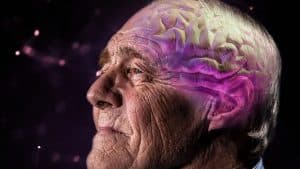People have been experiencing dark moods for as long as humanity has existed. Sometimes they’re for understandable reasons, like the loss of a loved one or because of ongoing life problems. Sometimes they seem to appear from nowhere. It’s only more recently that we’ve really started to understand depression as an illness.
There are a lot of misunderstandings about depression, partly because of the confusion between what’s just a naturally low mood and what is a clinically diagnosed mental health condition. Everyone feels down sometimes, but for most people, those feelings will disappear again just as easily. If you’ve been in a depressed state of mind for several weeks, let alone months or years, you might need a little help to get back to your best.
Common symptoms of clinical depression include feelings of despair and hopelessness. You may lose interest in things and activities you used to enjoy. Depression can interfere with your appetite and your sleep patterns while also making it harder to maintain relationships. In its most severe forms, it may even lead to suicidal thoughts and self-harming. These symptoms often sit side by side with the symptoms of anxiety disorders.
The causes of depression aren’t always obvious. Sometimes there will be a major life event, like losing your job or going through a divorce, that can be pointed to as an obvious trigger. Lots of smaller negative events can also build up to increase your susceptibility. But not everyone who goes through these events experiences depression, and some people end up with depression despite having ostensibly happy and fulfilling lives.
You’re more likely to get depression if there’s a family history, suggesting a genetic component. Sometimes it has to do with brain wiring and various hormones and chemicals, or even a serious brain injury. Most likely, it’s a combination of factors, with a mix of biology and environment pushing the people more vulnerable to depression over the line to a clinical diagnosis.
Postpartum depression is a specific form of the condition that affects new parents (it’s mostly associated with mothers, but fathers and partners may also experience something similar). It has many of the same symptoms as clinical depression and makes it difficult to bond with your baby. If you continue to experience low feelings several weeks after the baby is born, talk to your doctor. It could get worse if untreated.
One of the problems with treating depression is that it can take sufferers a long time to admit they have a problem and to ask for help. The sooner it is diagnosed, the sooner it can be under control, but often the brain lies and says “it’s not that bad” or “I don’t want to cause any trouble” or even “I don’t deserve help”.
There’s no cure for depression, but there are ways to make life easier. For mild depression, small changes like more exercise, less alcohol and an improved diet might help, but these changes can be difficult to make when severely depressed. Sometimes medication will be necessary, or therapy, or some combination of the above. Don’t be afraid or ashamed of needing treatment. It may help to find a support group as there are lots of other people going through a similar thing.




